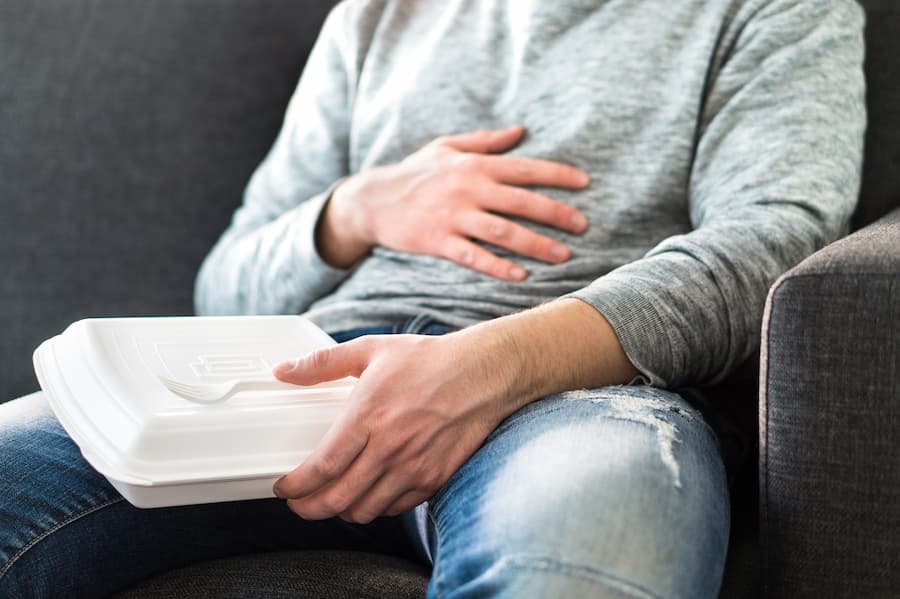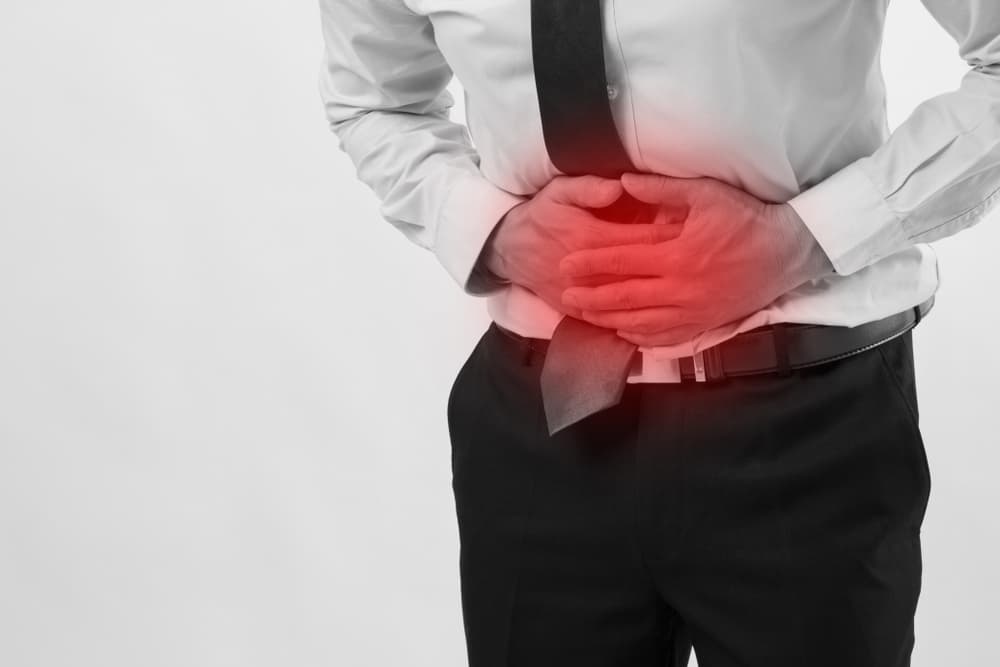If you dined at a restaurant or bought food from a supermarket in Wisconsin and became ill afterward, you may have a legal claim for food poisoning. You can hold the restaurant, retailer, manufacturer, or grower that prepared or sold the food responsible for your illness, and you could receive compensation for your medical expenses and other losses.
Food poisoning can hurt you in many ways, and the illness could lead to serious health problems or even death. Therefore, you need a lawyer who understands Wisconsin’s laws regarding food poisoning and how you can obtain the compensation you need.
Our experienced Wisconsin food poisoning lawyers can advise you of your rights and options and increase your chances of a favorable outcome.
The attorneys at Nicolet Law Accident & Injury Lawyers can sit with you and discuss your case free of charge, and we are fully prepared to fight for the compensation you need and the justice you deserve.
Why Work With Us?

Voted among the best personal injury law firms in the Midwest, Nicolet Law Accident & Injury Lawyers has recovered more than $55 million in total compensation for our clients.
In food poisoning claims, our attorneys have recovered:
- $2.8 million on behalf of individuals sickened in a single outbreak caused by prepackaged produce
- $2.64 million on behalf of individuals sickened in a single outbreak caused by prepackaged produce
- $1,093,500 for individuals sickened by contaminated produce served by a restaurant
- $800,000 for a man who had gastrointestinal issues after being sickened by Salmonella
- $625,000 for the family of an elderly woman who got sick after eating a food item
Family-owned and operated since 2007, we have served injured clients in Wisconsin for more than 15 years, and we have law offices in Eau Claire, Milwaukee, Hudson, New Richmond, Rice Lake, Superior, Wausau, River Falls, Green Bay, and La Crosse.
Our lawyers have decades of combined legal experience, and we will sit with you and help you understand the injury claims process so you know what to expect. We have extensive knowledge of Wisconsin’s food safety and product liability laws, and we can gather evidence to build the strongest case possible to increase your chances of getting the maximum amount of compensation you need.
Our attorneys have secured millions of dollars for victims of foodborne illnesses, and many other multi-million-dollar verdicts and settlements for our clients.You can count on us to fight hard to help you get the justice you deserve. Nationally recognized as leaders in our field, our attorneys have earned consistent top rankings and honors from our peers, and our lawyers have appeared on national television news programs and been featured in major publications.
Additionally, we have received hundreds of five-star reviews from our clients along with dozens of testimonials, and our attorneys have received Top Attorney designations and superb, 10.0 client ratings on Avvo.
You can count on us to be there for you when you need us, and we will treat you like a member of our own family as we go to bat for you against food companies or in court. Contact Nicolet Law Accident & Injury Lawyers today for your free consultation.
Injured in Wisconsin? Get Nicolet.
What Is Food Poisoning?

According to the Wisconsin Department of Health Services, food poisoning is any illness or disease that results from consuming foods or drinks contaminated with harmful germs and bacteria, including:
- Salmonella
- E. Coli
- Listeria
- Campylobacter
- Cyclospora
- Hepatitis A
- Botulism
The Centers for Disease Control and Prevention (CDC) estimates that approximately 48 million people in the U.S. suffer foodborne illnesses each year, and of those, 128,000 require hospitalization and 3,000 die from their illnesses. Many of these illnesses form clusters of illnesses or outbreaks, often linked to a single common product or exposure.
Victims of food poisoning can suffer serious diseases and health conditions, such as:
- Hemolytic Uremic Syndrome (HUS)
- Meningitis
- Sepsis
- Blood clots
- Nerve damage or related conditions like Guillain-Barre Syndrome (GBS)
- Osteomyelitis
- Acute and ongoing gastrointestinal issues, such as post-infectious irritable bowel syndrome (PI-IBS)
- Pregnancy complications like miscarriage or preterm birth
- Kidney damage
Although you can get food poisoning from any type of food, the most common foods linked to food poisoning or foodborne illnesses include:
- Fresh produce (fruits and vegetables like lettuce, leafy greens, and sprouts)
- Raw meat, such as chicken, beef, turkey, and pork
- Raw or unpasteurized milk and cheese
- Seafood and raw shellfish
- Raw flour
Food can become contaminated in the field, during processing, or at any stage in the food production chain. Food can also become cross-contaminated in kitchens and other food preparation areas where safe food comes in contact with tainted food, such as raw meat, which is a common cause of restaurant outbreaks. Finally, sick food handlers can transmit illness to others through food items.
Food Poisoning Symptoms

Food poisoning can cause a variety of symptoms depending on the pathogen involved.
Some common symptoms of food poisoning include:
- Nausea
- Stomach pain and cramps
- Vomiting
- Diarrhea
- Bloody stool
- Fever
- Headaches
- Weakness
You can also experience dizziness, excessive thirst, abrupt changes in your thinking or behavior, vision problems, tingling or numbness in your extremities, and others.
If you notice any symptoms or anything out of the ordinary after consuming food that may have been contaminated, you should seek prompt medical attention, no matter how mild your symptoms. Some foodborne illnesses may not present symptoms right away, or the symptoms may intensify quickly. You can suffer dehydration and other health issues, so you need to go to the doctor immediately if you notice symptoms and have tests done to identify the probable cause.
Food Poisoning Claims and Lawsuits
You shouldn’t have to incur the costs of your medical treatment alone, and you have every right to pursue compensation for the expenses and suffering your foodborne illness caused. Like all other states, Wisconsin allows those sickened by food products to obtain damages from sellers or manufacturers. Manufacturers of food (including growers, processors, or preparers) can be held “strictly liable” for foods that cause illness. However, the process of proving these kinds of cases can be complex, and often requires assistance of experts in medicine, epidemiology, or food safety. Our lawyers are experienced at evaluating and proving claims for foodborne illnesses.
Wisconsin gives injured parties three years from their injury to file a lawsuit in civil court. The statute of limitations drops to two years for wrongful death.
If a restaurant, market, or other food-related business caused your foodborne illness, the establishment will likely have insurance coverage. For injuries covered by insurance, the first step is to have your attorney file an injury claim with the at-fault party’s insurance company. Acting quickly can preserve key evidence or documents that support your claims, so take action as soon as you feel able. Your attorney will have to submit your claim quickly as many insurance companies require you to submit a claim within 30 days of the injury.
Building Your Food Poisoning Claim
The most important aspects of your food poisoning claim are to show you suffered a foodborne illness and determine the source of the illness. Companies or restaurants that sell food that is contaminated with harmful bacteria or other pathogens can be held responsible under state product liability laws, which often do not require proving that the company knew or should have known that the product they were selling was contaminated at the time it was sold. If a company does not take appropriate steps to prevent contamination, they can also be held liable for negligence.
You will need documentation that you received treatment for your illness along with evidence your illness was the result of a foodborne pathogen.
As your attorney prepares your claim, they will gather evidence and information to support it, which can include:
- Your medical records
- Medical bills and receipts
- Laboratory and diagnostic test results
- Your health department records
Your lawyer may also include written confirmation or testimony from your doctor that any complications of your illness resulted from the foodborne pathogen.
For a food poisoning claim, one of the most challenging aspects is establishing a link between your illness and the restaurant or grocery store that served, sold, or gave you the food. All injury claims rely on the concept of causation to establish liability, and your attorney must determine the restaurant or grocer that caused your foodborne illness.
Commonly, this involves outbreak investigations by the Wisconsin Department of Public Health, and if the outbreak spans multiple states, the Centers for Disease Control and Prevention. If you have been contacted by a health department official and asked to provide a food history for the time before you got sick, this is a good sign that your illness may be linked to a larger outbreak.
Additionally, your attorney may contact industry experts who can attest to the probable link between the establishment and your foodborne illness. Your lawyer may also hire an independent licensed physician, like infectious disease doctors or gastroenterologists, to verify your diagnosis and testify as to its cause.
Your attorney may employ other investigative methods and should work diligently to gather as much information and evidence as possible to help you build the strongest case.
While many law firms advertise for foodborne illness cases, you should consider asking whether the attorney has any past experience handling these types of cases.
What Types of Compensation Can You Receive?
For a food poisoning claim in Wisconsin, you can receive both economic and non-economic damages, which can cover both out-of-pocket expenses and other financial losses as well as the ongoing adverse effects the illness had and will continue to have on your life.
You may receive compensation to cover:
- Your medical bills and copays
- Treatment and therapy costs
- Prescription medication
- Lost wages
- Pain and suffering
- Loss of consortium
- Loss of enjoyment of life
You may qualify for other compensation, and the court may award punitive damages in cases of egregious misconduct or unlawful actions if your case goes to trial.
What Are Your Legal Options if You Suffered Food Poisoning in Wisconsin?
Food poisoning can lead to serious illnesses that require hospitalization or extensive medical treatment. If you suffered a foodborne illness after eating at a restaurant, café, ballpark, supermarket, or any other establishment in Wisconsin, the eatery may be liable for your illness. The same holds true if you got sick at home after eating food you bought from a local market or food stand.
Any establishment in Wisconsin that serves or sells food has a legal obligation to ensure the food is safe to eat. Grocery stores, restaurants, and food processing facilities must also inspect their premises for potential hazards and train their employees on safe and proper food handling, preparation, and storage techniques.
The Wisconsin Department of Agriculture routinely inspects food service facilities and may punish or shut down the facility due to violations. These include food processing facilities, dairy farms, meat processors, retail food establishments, and vending machine companies, among others. County health departments should inspect local restaurants.
Some common scenarios that cause food poisoning and foodborne illnesses include:
- Kitchen workers not washing their hands
- Workers not properly cleaning and sanitizing workstations, cooking vessels and utensils, and food preparation surfaces.
- Expired food
- Improperly handled, canned, or stored food
- Undercooked food
- Sick food handlers and cooks
- Cross-contamination
Determining the source of the foodborne pathogens and establishing liability can be complicated, and you need to consult an experienced Wisconsin food poisoning lawyer immediately.
If a restaurant, market, or other food-related business caused your foodborne illness, the establishment will likely have insurance coverage. For injuries covered by insurance, the first step is to have your attorney file an injury claim with the at-fault party’s insurance company. Acting quickly can be important to preserve any key evidence or documents that can help support your claims, so take action as soon as you feel able.
Get Help from an Experienced Wisconsin Food Poisoning Lawyer

For help investigating your food poisoning case, establishing liability, and pursuing compensation, you need to consult an experienced Wisconsin food poisoning lawyer right away. The attorneys at Nicolet Law Accident & Injury Lawyers are here to help you develop the strongest case possible, and we will fight hard for you during settlement negotiations or at trial. Reach out to a Wisconsin personal injury lawyer.
For a free consultation concerning your food poisoning claim, you can contact us at (715) 377-2141 or through our contact form.